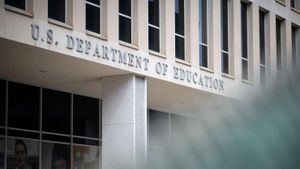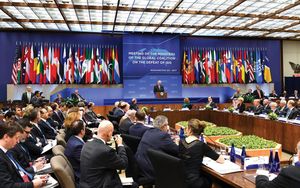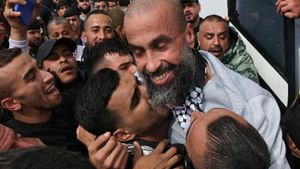The head of the Catholic bishops’ conference in the Philippines has called for tangible action against clergy sexual abuse, asserting the need for victims and witnesses to report such incidents to both civil and ecclesiastical authorities. Cardinal Pablo Virgilio David voiced these sentiments on January 31, 2023, following the publication of allegations involving 82 priests and religious brothers linked to sexual abuse by the advocacy group BishopAccountability.org.
Cardinal David's statement emphasizes accountability within the Church, aligning with Pope Francis' vision of greater transparency and support for victims. He said, “We welcome initiatives intended to hold people...accountable, including the Church. This is part of the pope’s call for a more synodal Church. The Church, being a human institution, is not exempt from sin and corruption.” He not only urged victims to file complaints against clerics through both civil and Church channels but also underscored the importance of community involvement, noting the role of journalists as allies against disinformation.
While Cardinal David’s call for reporting to either the police or Church leaders reflects his commitment to addressing the epidemic of clerical abuse, it has generated concern among victims’ advocates. Critics argue it may overshadow the necessity for direct law enforcement engagement, as highlighted by U.S. bishops who advocate always contacting the police about abuse allegations.
Despite the historical shortcomings, his statement marks an important moment for advocacy within the Catholic Church, especially following troubling reports underlining systemic issues related to abuse. The Philippines has had its share of allegations, with earlier church guidelines mentioning the need for cooperation among different dioceses globally. “It’s important... to inform us bishops... so we can take appropriate action...” Cardinal David remarked, alluding to the issue of accused priests returning to the Philippines from abroad.
The gravity of the situation was highlighted as Cardinal David and his colleagues were made aware of new protocols implemented since previous high-profile cases emerged. According to BishopAccountability.org, among those identified, seven priests have faced penalties ranging from suspension to expulsion after investigations. Alarmingly, one is still active, and some priests were merely noted as credibly accused without substantive action taken due to their legal standing.
Abuse within the clergy has long been disregarded, yet recent efforts by church leaders aim to conclude silence and encourage dialogue. This was apparent from Archbishop Jose Palma's statement, where he revealed, “Three of the 10 priests tied to the Cebu archdiocese... have already been reintegrated in active ministry today.” He emphasized this was conditional upon thorough assessments from both civil and ecclesiastical authorities.
On the other hand, Bishop Gerardo Alminaza assured civil authority cooperation during investigations, signaling institutional support for safeguarding victims throughout the process. His additional comments about public liturgical duties were met with criticism; he later apologized for statements perceived as dismissive of public concerns.
This situation was compounded by the gathering of activists from the worldwide alliance Ending Clergy Abuse, convening for what they termed as the “Zero Tolerance” summit, where discussions focused on increasing accountability from the Catholic leadership. Prominent figures, including BishopAccountability.org co-director Anne Barrett Doyle, described the Philippine bishops as lacking awareness of their failings, labels which are tough for church leaders amid extensive scrutiny.
Statistical data presented during the recent discussions point to historical negligence; between 1982 and 2002, of the 7,000 priests serving, 200 faced allegations of abuse, as relayed by previous CBCP president Archbishop Orlando Quevedo. Reports indicate problems are ingrained, leading to persistent patterns of misconduct. These formative issues have prompted new calls for reform across the clergies.
Revisiting the existing guidelines has become more urgent, culminating with Bishop Romulo Valles acknowledging, “The present painful situation... is a good occasion for us bishops to revisit and review the existing guidelines.” This sentiment reflects the gravity of the clergy's systemic failures over decades.
Following the Pope's issuance of the motu proprio Vos estis lux mundi in 2019, the Catholic Church made strides toward establishing safeguarding offices across dioceses, prioritizing the protection of minors and vulnerable adults. Yet, as these recent revelations emerge, it is evident the road to comprehensive reform remains long and fraught with challenges.
The commitment to ensuring safe spaces within the Church is ever-more pressing, with calls for greater participation from laypeople and collaborative actions with law enforcement echoing through the discourse surrounding this sensitive issue. Promises for reform must translate to changes felt at ground level for real healing to begin.



